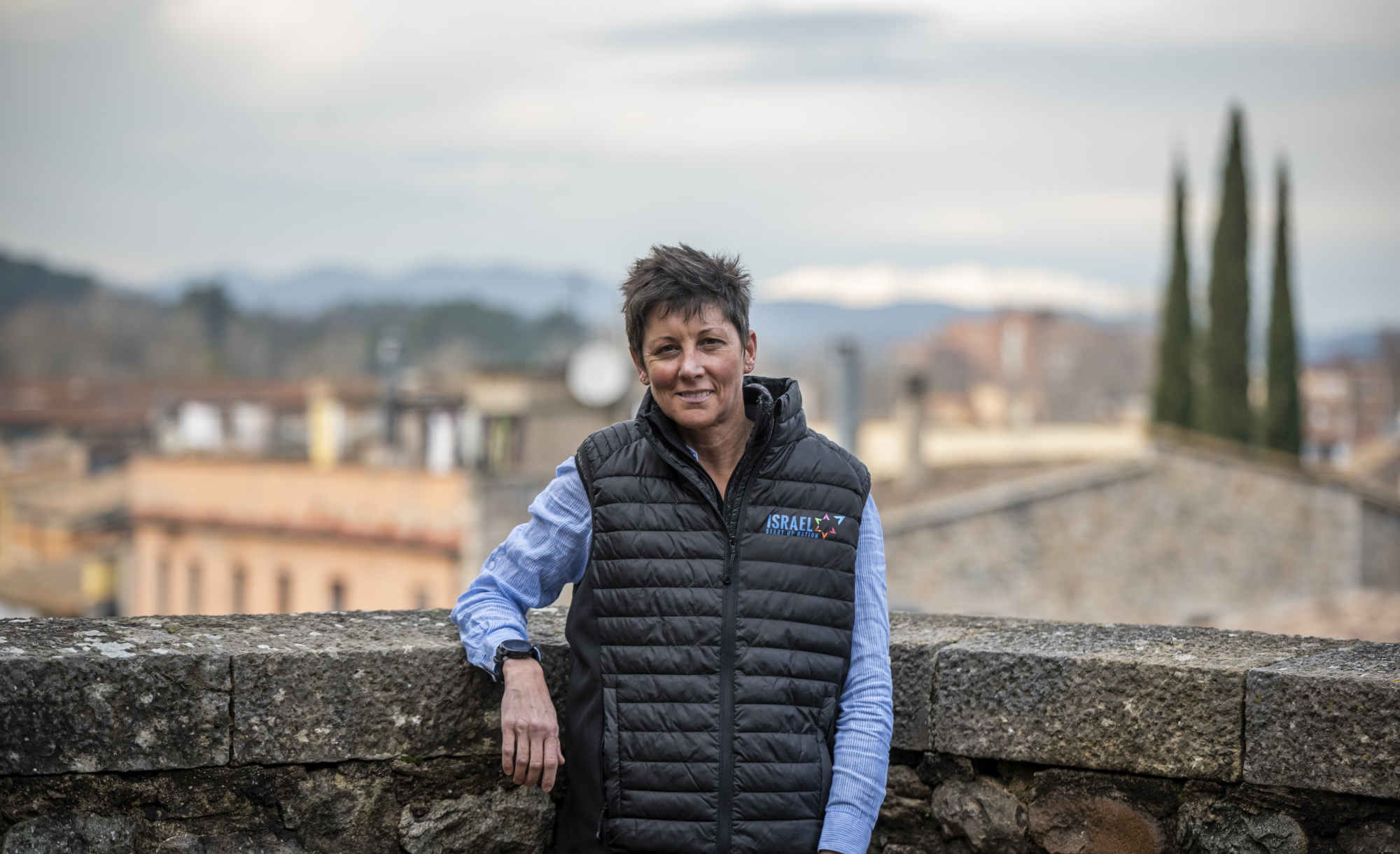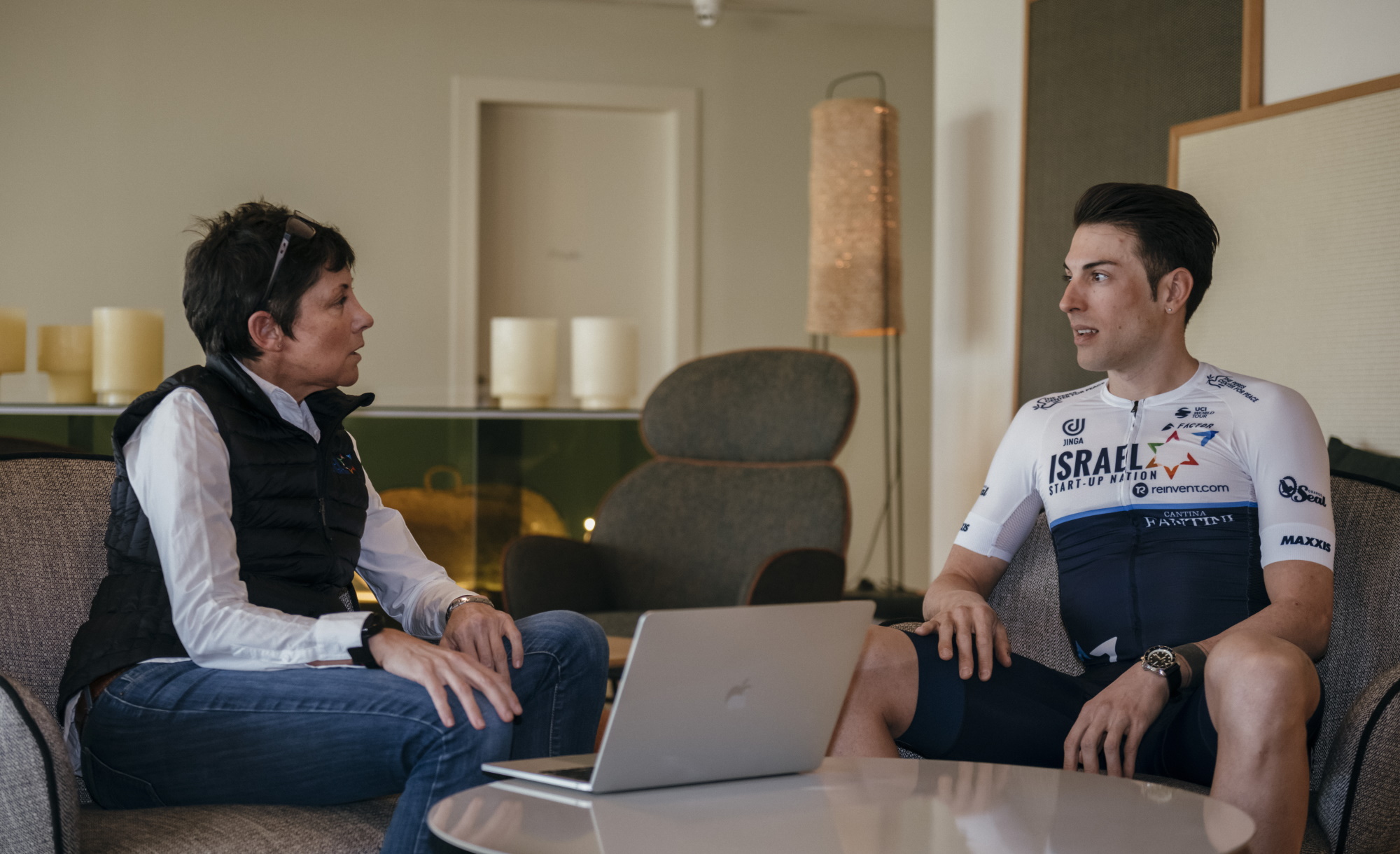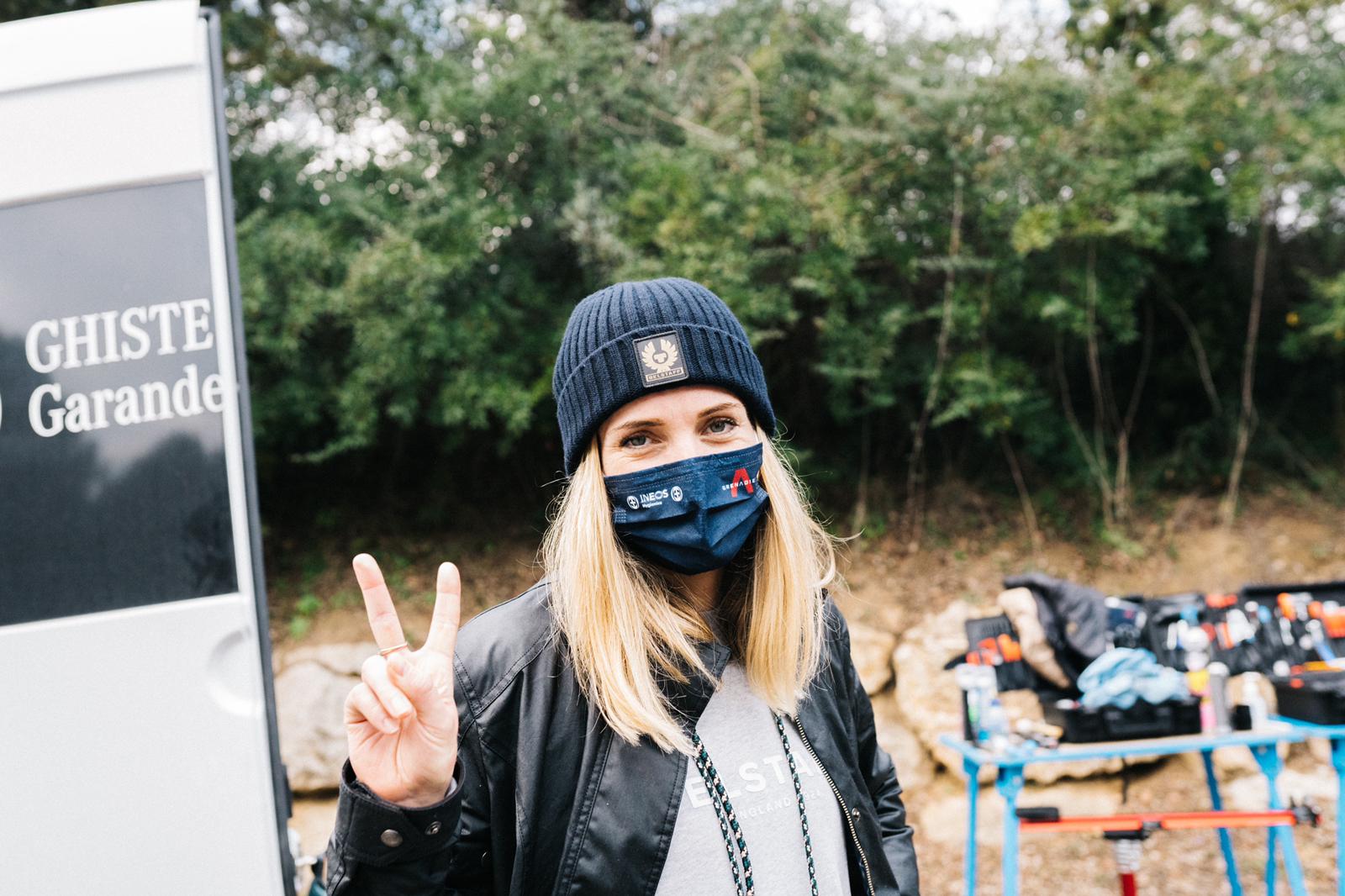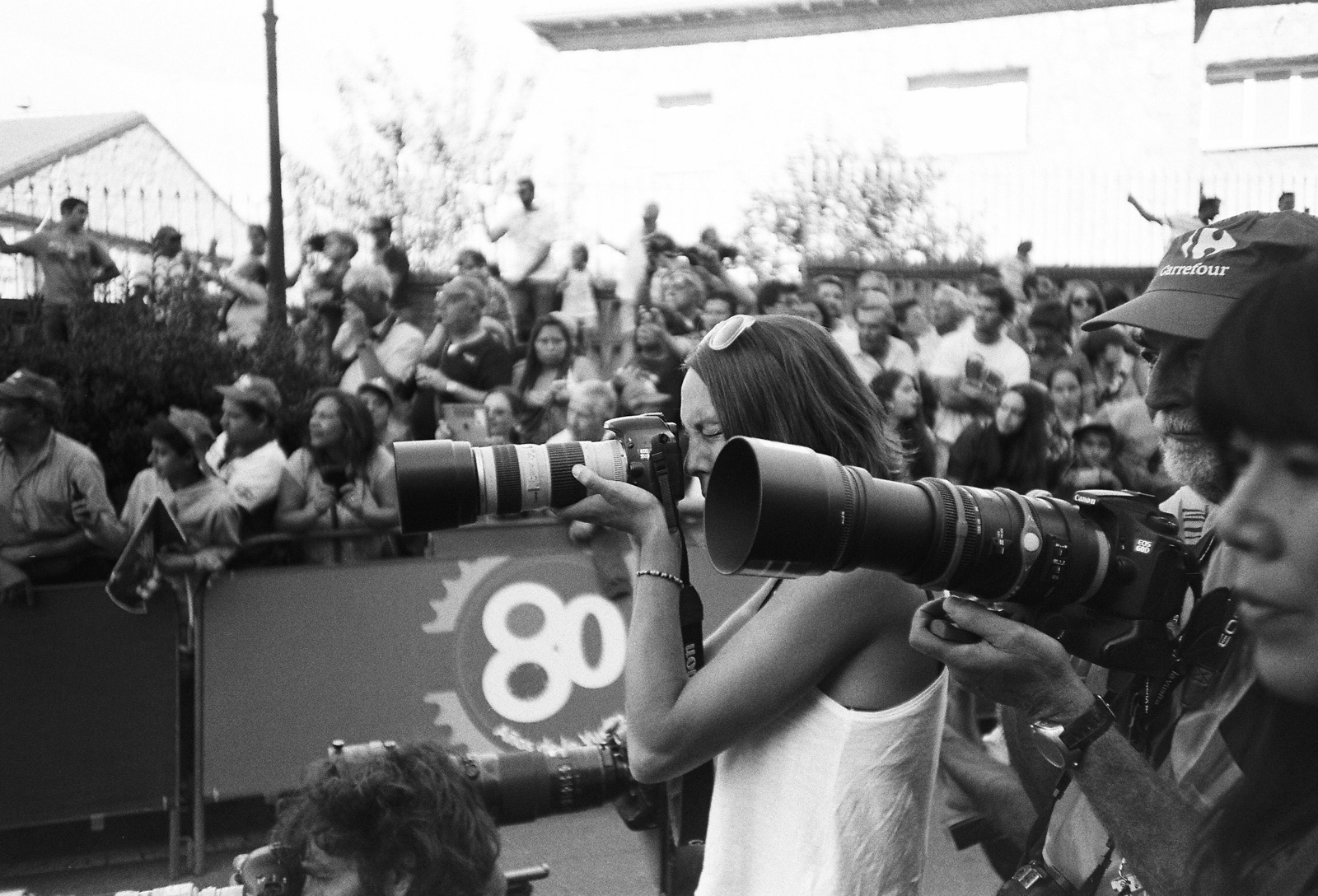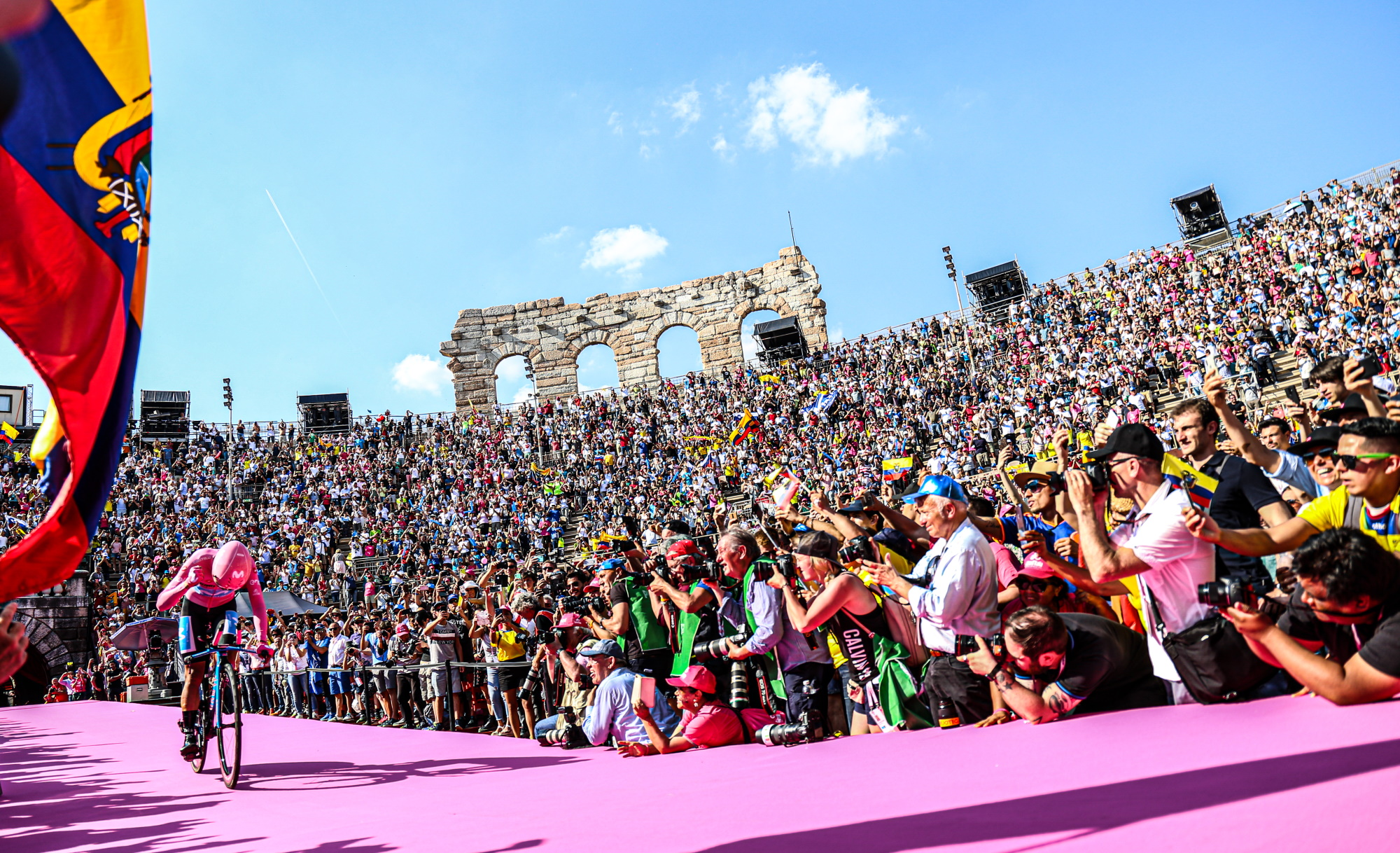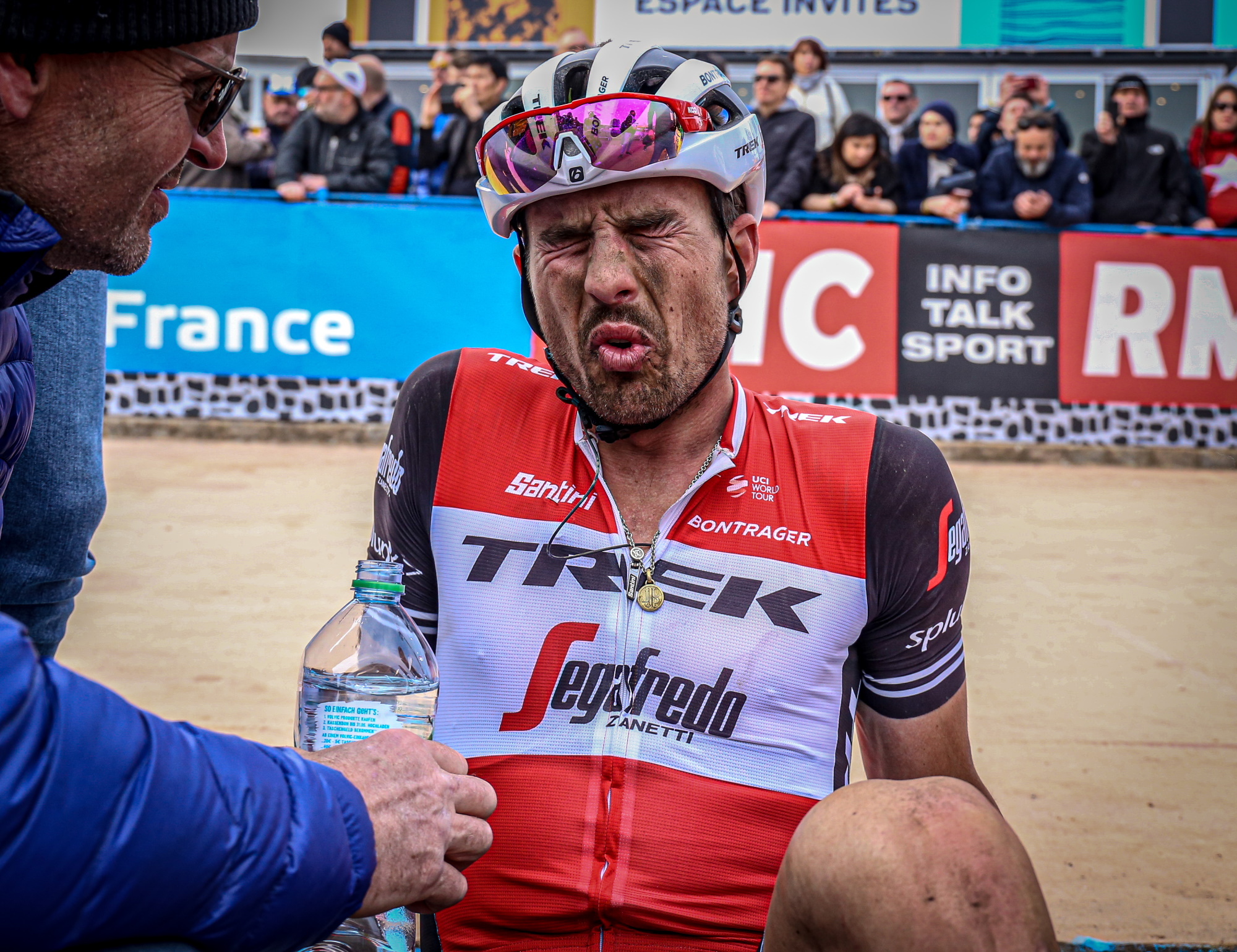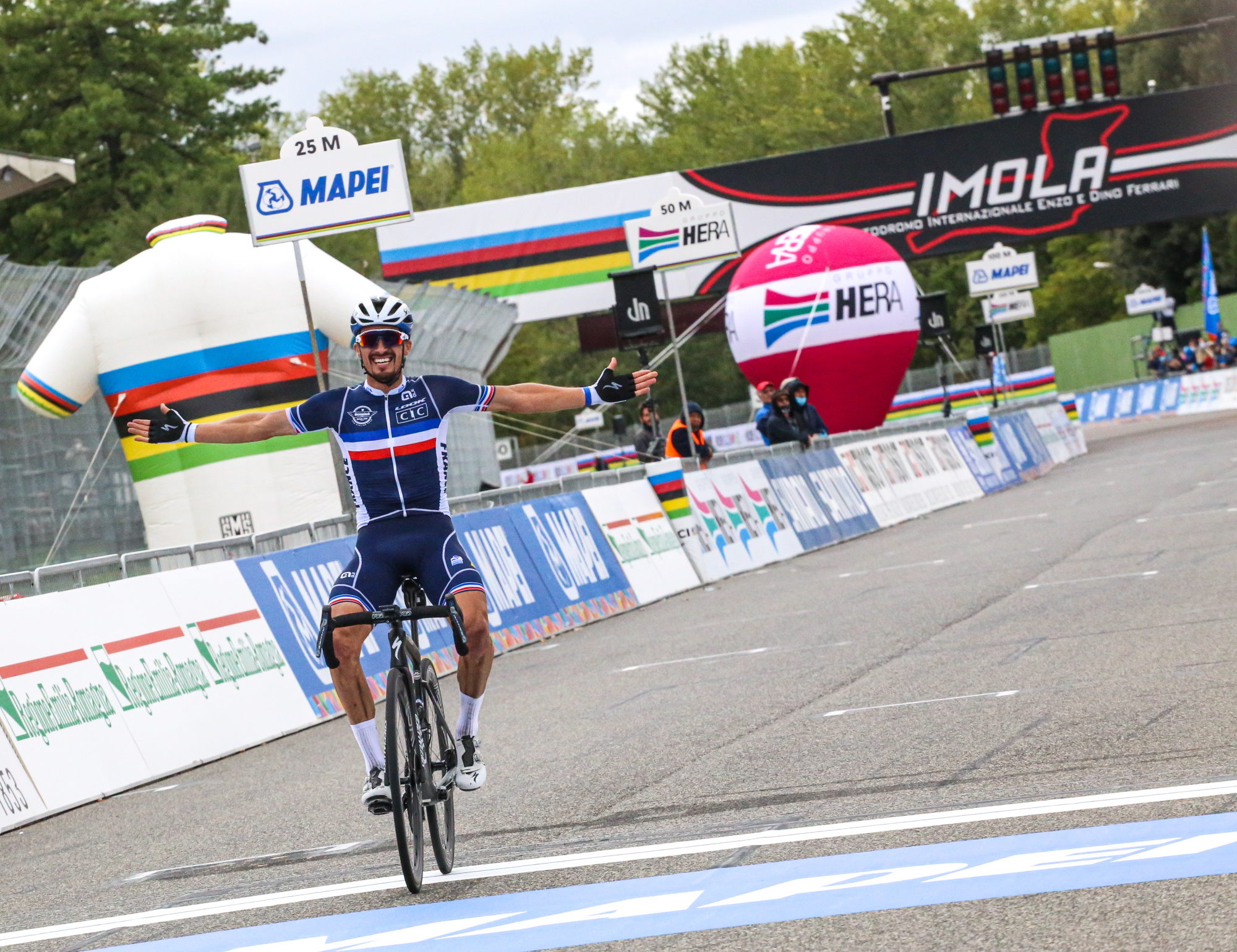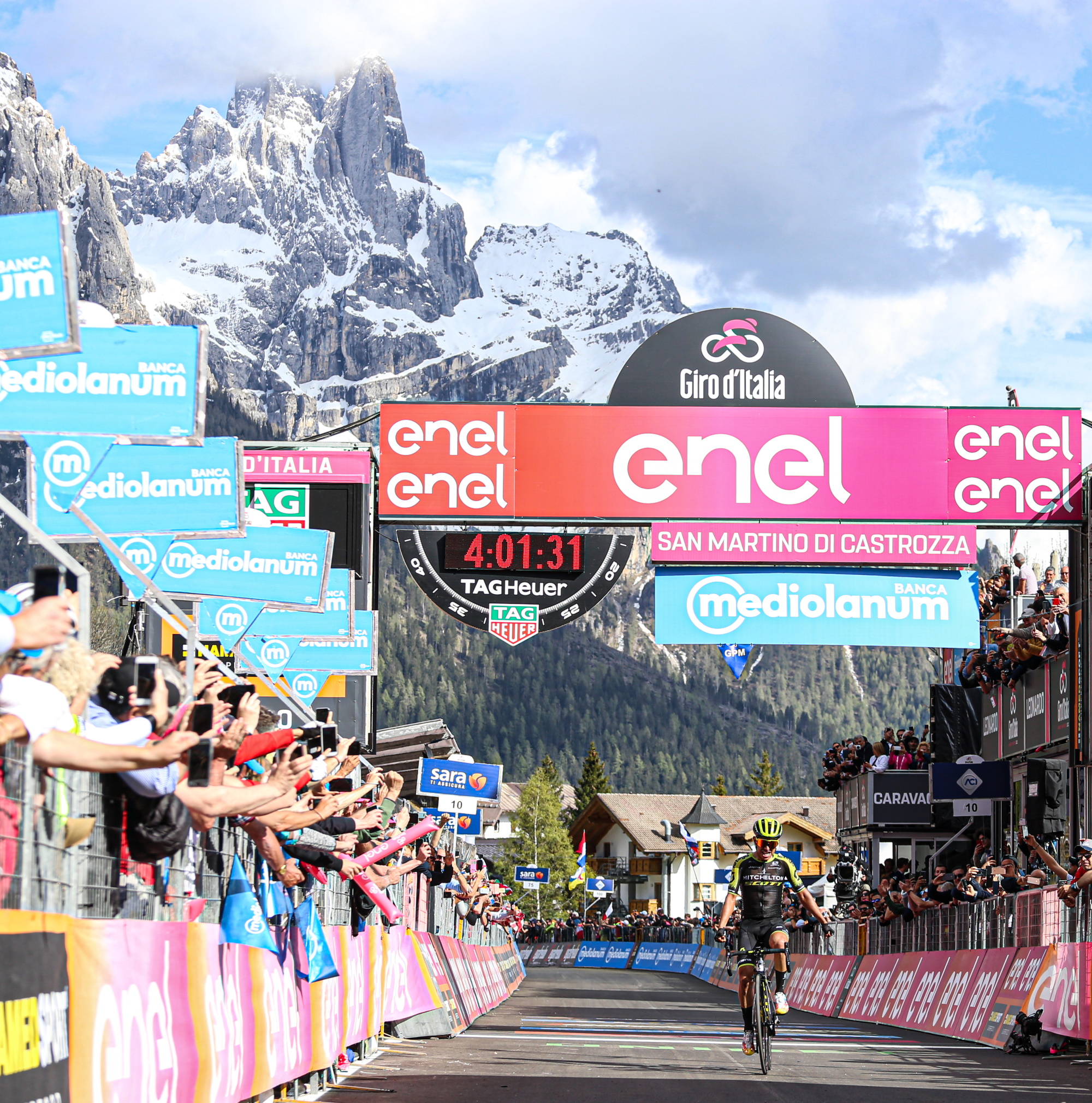Every time I’ve been able to visit, either because of work or for leisure, a Grand Tour, there are a few things that have caught my attention. Amongst all of them, one has always been the role of women in those big walking “circuses” that are teams.
A lot of questions popped up in my head and I barely had any answers: What was their career path? What’s their role? Are they treated fairly by men? Why aren’t there more women? Is pro cycling sexist?
I had to find answers so I checked with three different profiles. Three names that would help me get an idea based on their experience. These three voices speak from their experience. No one has the absolute truth. These are, simply, three different points of view. Just, three stories.
Cherie Pridham
Our first protagonist exudes temperament, courage, and leadership from every fiber of her body. Maybe just by their name, Cherie Pridham, you don’t recognize her. All I will tell you about her is that a few months ago she became the first female Sports Director, specifically from the Israel Start-Up Nation Team. But this is not about being the first. This is about, as she said, being good:
“If you’re good, and you are capable, it shouldn’t matter if you are a man or a woman.”
Where does your love for this sport come from?
Cycling has been in my life throughout my whole life. I started when I was 11, with the dream of someday turning professional, which I achieved at a young age, as I was just 17 years I made it. My ambition then was to race at the Women’s Tour de France, which I ended up achieving not long after. My professional career lasted about 12 years, in which I did 8 Tours, 2 Giros, and many more great races, which unfortunately don’t exist anymore in the calendar. Now, luckily, everything is much more professional and cyclists are better prepared with a great setup. I wouldn’t change what I lived for anything, but I have huge respect for today’s cyclists.
After you stopped riding, your connection with the cycling world still continued, but on the male’s side, right?
Yes, exactly. During these 12 past years, I’ve run my own team in the Continental category, which is really difficult because you have to take care of the commercial aspect of it, and also the sport aspect of it. You have to fight all the time. That’s really hard because you have to find sponsors and work every single day for it to keep working.
And how did Israel Start-Up Nation enter your life?
When the pandemic started, looking for sponsors was really difficult and then I realized that maybe I had to look for a job outside of the cycling world. I was really scared because all I really know about is cycling. And I remember being on my own one day, wine glass in hand, thinking to myself… “Why not? I have nothing to lose”. The only thing I was sure of was which teams I wanted to work for so I started sending emails. I was surprised when two of them answered straight away, obviously, one of them being Israel Start-Up Nation. You cannot imagine how nervous I was, just because they took the time to reply to my email.
And what happened?
The General Manager, Kjell Carlström, said that he would call me, and he did.
Do you remember that day?
Yes, like if it were yesterday. It was the final day of Le Tour de France. We had a talk and things were evolving with my own team. I thought the best solution was to close that chapter. I must say it was a very emotional day for me, but I felt a relief because that constant fight was so exhausting. I came home and I told my family that I was going to close the door to start a new chapter. It was like 7 pm and I filled my wine glass and I opened my laptop. I got an email. It was my new contract. I’m not afraid to admit to saying that I cried like a baby for 10 minutes.
It was at that moment that you started to fill magazines and cycling websites for being the first female to lead a male pro cycling team. How’s your experience?
Honestly, I don’t give it too much attention. I always say the same thing, if you are good or if you are really qualified for any job, it shouldn’t matter if you are a man or a woman. On the other hand, to do a job like this you need to have the character and have confidence in yourself to accept the challenge. The last 12 years in charge of my own Continental team taught me a lot. I have that experience, but I have to adapt to the new job position and I have to learn the rhythm of cycling at the top level.
What qualities should a DS have?
I can only talk for myself. First of all, it should be able to listen. It has to adapt to every situation, think very quickly, and learn to work with many different people and characters. It must respect others and be respected. It’s kind of a balance. I think I’m different from other Sports Directors that are men, I think I listen a little bit more and maybe I’m a little bit more diplomatic, but I’m also hard (laughs).
Last one. Have you thought about becoming an inspiration to all those women that come after you?
I’ve thought about it, but as a consequence of the number of interviews, I’ve done. I’ve never imagined that I have to talk to the media every day. Now I feel more that responsibility, especially because of the amount of messages women have sent me thanking me. I’ve gotten so many that I haven’t been able to reply to them. Thanks to that I’ve realized how much it meant. My boss says that I should get used to it, but I’m still working on it.
Hannah Troop
The second profile has had her luggage ready for years. Life has taught her that it has to be like that. She left her hometown Nottinghamshire to live in Barcelona. She quit her job because of her love for one sport and thanks to her dad. And Bradley Wiggins. Hannah Troop is our next main character.
How did pro cycling arrive in your life?
I had my first kind of experience in the cycling world back in 2012 and I was cycling from London to Paris over a few days with my dad. We got into Paris the week that the Tour de France arrived there, and I remember my dad saying to me “Oh, there’s a chance that the first British guy is gonna win the Tour de France” which obviously was Bradley Wiggins, but I had no idea who he was.
I went to the Champs Elysees and I was hooked. I was hooked into cycling anyway and that kind of ignited a real love for the sport, I was mesmerized by it. And then back in 2015, I was working as a marketing campaign manager for Tesco and I didn’t really find it that fulfilling, it wasn’t really my environment. I didn’t really enjoy it and one day a colleague asked me “If you could do your dream job what would it be?” and I said,
“I think I’d like to be a journalist and work within cycling.”
From then on I started to research online about online courses. That was in September 2015 and in 2016, in January, something changed after some advice from another journalist. He asked if I had any other language experience because languages are really helpful in cycling. So I said,
“I’m really gonna give this a go, I’m gonna quit my job in a few months when I’ve saved up enough money and I’m gonna move back to Barcelona to get my Spanish back to a good standard again”.
So in May 2016, I quit my job and at the beginning of September, I moved to Barcelona, without a job, did some intense Spanish lessons, started to build up my freelance client list. It was hard. And then I got offered a job as a magazine editor in Gran Fondo Magazine in Germany. So, I moved to Germany and worked for them and that started the ball rolling. After that, I moved back from Germany to the UK and worked for Rouleur Magazine for a while before eventually being offered a job for the communication of content department for the current EF Education-NIPPO. So that was kinda my way into it.
By the way, this year you have changed the team. Explain to us how it was to sign for INEOS Grenadiers and which is your role?
It’s been an intense couple of months but really good fun. I was super excited to get a job with them last year. I’m their Content and Communications Manager, so basically I cover the PR side of the team, helping organize anything kind of the media, with riders or with the members of staff. And then also being on the race as support with the media. I help with all of the contents, so that could be writing an article about a rider or a member of staff, to record a video that we put into our social media channels. In my old team, we also did a podcast. I’ve also done photography for the teams as well, so if we have photoshoots and a photographer comes I’ll also help produce that, make things happen, riders are in the right place at the right time, etc.
How many women do you think are currently working in WorldTeams? Do you think that is enough?
I’ve only been working within the cycling world since 2016, so I think I’ve come into this sport when there are definitely more women now than there have been. It still feels very male-dominated, especially within the teams. I think there’s only one female DS who just started this year. As a whole, there are a lot more men working in it than there are women, but having said that there are more and more women coming into it, especially on the media side, I see quite a few female journalists. Within INEOS Grenadiers we had Fran Millar as CEO. When I was in EF, the president of the team was Mary Wittenberg, a female as well. There’s even a few bus drivers that are female. It’s definitely changing. I don’t know how many to be honest because there are so many races that I don’t go to so I wouldn’t be able to say that.
Do you think it’s harder for a woman to make it to a professional team than for a man?
No. I didn’t feel like there was any problem for me entering into this world at all. I feel like if you show that you’ve got a real aptitude and that you’ve got a real passion for the sport that takes you along the way and, I’d like to think that I’m in this world, that I’ve got the job that I’ve got not because I’m a female but because I work hard, and I’m good at my job and I’m appreciated for what I do.
I’m only speaking from my own experience. I think, if anything, people make jokes about that kind of mentality of “you shouldn’t be around if you are a woman”. There’s still that kind of mentality in some teams, but definitely not in the ones that I’ve been in. They’ve been so welcome and supportive and I’ve never felt like it’s been a real issue. So, for me, if you’re good at your job then you’ll be fine. That’s just based on my experience around the teams and all the media outlets that I’ve worked for.
Did you feel at any moment some kind of doubts or were you afraid to be a woman because you were in a “world of men”?
No. I didn’t actually, but I think I’m quite outspoken, I don’t really give a sh*t. Everyone knows where they’re at and we kind of try to support each other the best we can, and I definitely feel that. And I think that there have been moments when people try to take the piss a little bit and you just gotta have that confidence in yourself and in your job and say “no, actually…” and don’t be afraid to say no, like that’s the other thing, sometimes in my job you have to say no quite a lot, and you just have to have the confidence to do that. I definitely think that the mentality of this industry has changed a lot over the last few years, and I think that’s also helped with the fact that Female PRO cycling has started to grow and gain more and more traction and there’s a lot more media coverage around that, there still needs to be more around it, and I think that within cycling there’s a lot of women in there that kind of support each other, and wanna see each other do well in it. And that’s important, just being able to support one another and help in that way.
The best and worst moment you lived working within the pro cycling world.
My worst moment… I think when I first started in the cycling world as a journalist I was freelance. I was at Paris-Roubaix, for The Cycling Podcast recording some post-race interviews in the velodrome at Roubaix, and for anyone that’s been in that Velodrome at the end of Roubaix, it’s madness, there are riders covered in sweat, dust, and mud, there are people buzzing around trying to get interviews trying to find who they can talk to, journalists everywhere, TV crews everywhere, it’s just madness. I remember I got an interview with Matthew Hayman, who’d been the previous year winner, I had nailed getting interviews with some good riders post-race and I got back to the press room and went to download it all and I hadn’t recorded a single interview and I was like “Oh, Jesus… that is annoying” a whole days work… wasted.
And then one of the best moments… It was when I was at EF and Alberto Bettiol won Flandes, and seeing what that meant to the team, to the DS and everything was pretty incredible. Another of the best moments I had was in 2019, ¡wow I got goosebumps! I remember being in Les Champs Elysees at the end of Le Tour de France, and the sun was setting and the Arc du Triomphe was surrounded by this golden pinky sunset sky, the colors were incredible. It was the first time I had been with the team at the end of the Tour and it was the year that Egan won the Tour, so the first Colombian rider to ever win and that was pretty special. It felt electric, that night on the Champs Elysees… really, really, really incredible. I think those moments will stay with me forever.
A message for all those girls who want to arrive at the pro peloton.
You have a passion for it because you do have to have passion for this job, you’re on the road a lot, you are away from your family, and that can be tiring, it can take a lot of you sometimes, but at the end of the day, it’s great fun being on the road, being at races, seeing all these places, especially at this moment in time it feels like a massive privilege to be able to do that. If you don’t have a passion for the job, then this is not the job for you, because it will wear you down very, very quickly. If you have that kind of passion it’s very rewarding. Make sure it’s something that you really, really love.
Iraia Calvo
To finish this off, I wanted to speak with someone with another point of view. Away from the teams. Who better to look at it differently than a photographer? Iraia Calvo is, probably, one of the tops when talking about professional cycling photography. Born in Bilbao, one of her best photos was ruined by a colleague after 300km in the finish line in the Milano-San Remo. When she was about to shoot, he stood up and she could not see anything.
How does pro-cycling arrive into your life? Where does the passion for the two wheels come from?
It all started when I was 16-17 years old. I used to ride with a few friends and one day I was introduced to a professional rider and he started to explain how his world worked from the inside. From that moment, I got really curious and I wanted to go to a professional race. From that moment I got really hooked on that sport, until today.
What was first photography or bikes?
I’d say photography. I had always liked taking pictures, from using a disposable camera to getting my first compact camera and then I started taking pictures in races. I’d say that they grew at the same pace next to each other and one passion fed the other.
What was the first race you took photos of? Do you remember?
Yes, they were the Itzulia 2011 and the Giro 2011, to which I went by pure coincidence. I went on vacation to Italy and I saw that they passed through the city I was staying in. I found my way in and I got a pass. Now I remember it with a lot of excitement, but at that moment I didn’t know anybody and I didn’t know how to move. I remember that I took photos in Bergamo and in the TT in Milan. I even got in a race car to follow David Millar, from the Garmin-Cervélo Team. Once I got to Milan’s Duomo I started following the other photographers because I had no idea where I had to go. I tried to do what they were doing.
For the people that don’t know anything about bikes or cycling, explain that moment when you see the cyclist coming and you only have one opportunity to take a good shot…
It’s a mixture of tension and adrenaline boost. It must be like the moment where a cyclist sprints, a bad move can screw everything up. I enjoy it a lot and it’s such an incredible adrenaline rush.
Please explain to us, from the photos that you have sent us, what meaning do they have for you, why did you send them, where were they taken, etc…
It was very tough to choose because you are very fond of the photos you take. The first one I chose was Richard Carapaz in Verona’s Arena. I chose it because of the majestic scenery and for the history that Carapaz made when he became the first Ecuadorian to win El Giro. The second one is John Degenkolb in Roubaix’s Velodrome during my first Paris-Roubaix. I love it because I think that you can really see how hard this race is. The third one is Esteban Chaves in San Martino di Castrozza, in the Dolomites. It was “Chavito”’s first win after his huge injury. Moreover, his whole family was behind the finish line, which was really beautiful.
And the last one I chose is Alaphilippe winning in Imola. Every World Championship is special, but this one a little bit more. Without public due to the pandemic, because of how hard the race was and for how everything went. Hard, beautiful, and spectacular.
Let’s talk about women and professional cycling. Has it been more difficult getting into this world because of being a woman? Did you get that feeling?
You might get that sensation from the outside. But from my own experience, it hasn’t been. It’s true that sometimes you have to prove your worth twice because of being a woman, but it wasn’t difficult to get here. Every time it’s easier for women to get in, Cherie Pridham is the most known example. Every time there are more female photographers and hopefully, more will join us. It’s a very familiar world and at the end of the day, it’s like you have a second family.
How many female photographers are there in the pro peloton? And male?
There must be about 8 or 10, very little, honestly. Male photographers there are many many more. Also, in the last few years, the number of photographers has increased a lot.
Let’s talk about your photography inspirations, in the cycling world or not.
I’ve always liked Steve McCurry’s American photograph, he is on another level. And in cycling, I really like the work of Russ Ellis, Ashley, and Jered Gruber. Also, I’m lucky to be friends with some of them and I really admire them.
Last one, what does cycling mean to you?
A passion, a way of life, and my job. All of that created a perfect mixture.



